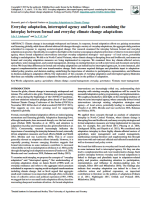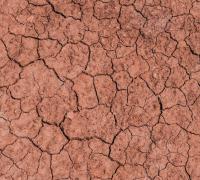Breaking down boundaries between planned and autonomous climate adaptation
The academic article “Everyday adaptation, interrupted agency and beyond: examining the interplay between formal and everyday climate change adaptations” in Ecology and Society challenges the division between formal and autonomous adaptation efforts, a dichotomy that has long informed adaptation research and policy. Instead, it supports a new approach emphasizing the interplay between bottom-up efforts and formal, often state-led initiatives. This better reflects realities of adaptation on the ground, thereby providing improved understandings of adaptation practice for research and policy.
The findings are based on analysis of this interplay in three climate change affected sectors in North Central Vietnam: agriculture, water management and coastal management. Key findings and reflections include:
- The utility of an ‘everyday adaptation’ approach, which understands adaptation as the interaction between household strategies and formal interventions.
- The occurrence of ‘interrupted agency’, where formal interventions interrupt households’ existing adaptation strategies, undermining household agency and risking maladaptive outcomes. This reflects a wider trend documented in adaptation research.
- The possibility of transformational system change through the interaction between household strategies and formal interventions; this required active dialogue and pluralistic input in formal decision-making.
DIIS Eksperter


